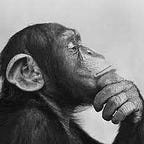Endogenous Entheogenic Eudaimonia
Aristotle coined the term, Eudaimonia, roughly translating to “human flourishing,” or happiness. We all want to be happy, as Aristotle concluded, and that happiness is the end of all means, or the point of everything we do. It is, per Aristotle, the ‘highest good.’ The good after which all other things are merely means to.
Further, one may say that this is true whether it is conscious or not. It is a “drive,” as Carl Rogers put it regarding the innate drive to self-actualize, departing from Freud’s position that we have two fundamental drives for sex (reproduction) and aggression. People have a drive to reach their full potential as a human, to flourish in all they can be including their talents, hopes, dreams, and their own unique, signature, embodiment of human virtue.
If everyone strives to self-actualize, flourish, and be happy, then why isn’t everyone doing so? There are many reasons. I’ll talk about a few here. Being happy requires knowing yourself, and whether someone is willfully ignorant or as a result of environmental misfortune and/or oppression, not knowing can hurt us. Also, sometimes the truth is painful, so people would prefer to deny, repress, and attempt to get rid of the truth residing in their minds instead of facing and integrating it into their personality and lives.
Ignorance breeds suffering, because, take for example, what happens when you are walking without looking where you are going: you will inevitably bump into something and hurt yourself or someone else. The same is true for what happens mentally, emotionally, and spiritually. We often look back and say, “If I had known ____, I would have been better off.” We need to look within and asking ourselves important questions about what we really value, where we are, how we got here, and what are intentions and beliefs are regarding the future. We need to face the truth. Eventually, we need to do this. Suffering motivates us to ask ‘the big questions,’ in life.
Further, facing the truth is a form of death if it is an important or ‘big enough,’ truth. We resist change if we perceive achievement of some acceptable form of homeostasis. Becoming aware of something can actually make you a different person, and once people find a comfort zone, they like to stick to it. Sometimes this is something we fall into with ease, other times it may be more difficult. Take for example, becoming aware of the fact that you are in love with someone. This will alter how you relate to others in very intimate ways, and by extension how you relate to yourself in very intimate ways. Or consider how you would change as a person if you became aware of your purpose for life as being different from your current occupation. You would need to go back to school for a few years, and if you’re married and have children, already went to college, or can’t afford college or don’t want to spend the money on it, then this would be very challenging.
If we don’t look within and find our authentic self then there is a good chance we are operating unconsciously and on auto-pilot, just coasting through life behaving in alignment to an operating system internalized from culture that may or may not be authentic. From a young age, our brain soaks up information to adapt to our cultures to survive. While you may be lucky enough to have very strong sense of authenticity and ability, opportunity, and privilege to put it into action, many aren’t as lucky and instead are conditioned by their family, community, schools, jobs, and society to be someone who they are not, and we all know living a lie makes us ill, whether physically or mentally. So, we need to actively go within to become aware of how to differentiate between cognitions (thoughts, emotions, etc.) that are a reflection of our authentic selves versus something that is a reflection of culture that may or may not be authentic to us. Through seeing our authentic self, we begin to understand how to put it into action and live our dreams.
An important tip is to find a balance point between needing to know about the world and yourself, and surrendering to not-knowing. Carl Jung said, “Beware of unearned wisdom,” for a reason. Knowing and/or becoming aware of too much too quickly can severely overwhelm and destabilize a person’s psyche, which can mess a person’s life up in various ways, possibly to the point of impairing functioning. Joseph Campbell, professor of literature and mythology, (author of The Hero with a Thousand Faces) said, “The psychotic drowns in the same waters in which the mystic swims with delight.” Interestingly, as discussed by Roger Walsh, MD, PhD, in his book the World of Shamanism, notes that many people who become shamans in indigenous populations display what we in the West label as signs of psychosis. Regardless, I would recommend that you at least journal once a week and meditate for at least five minutes every day to begin looking within so that you may find greater clarity in seeing your authentic self and how to put it into action. More on that later. Until then, Om Shanti!
